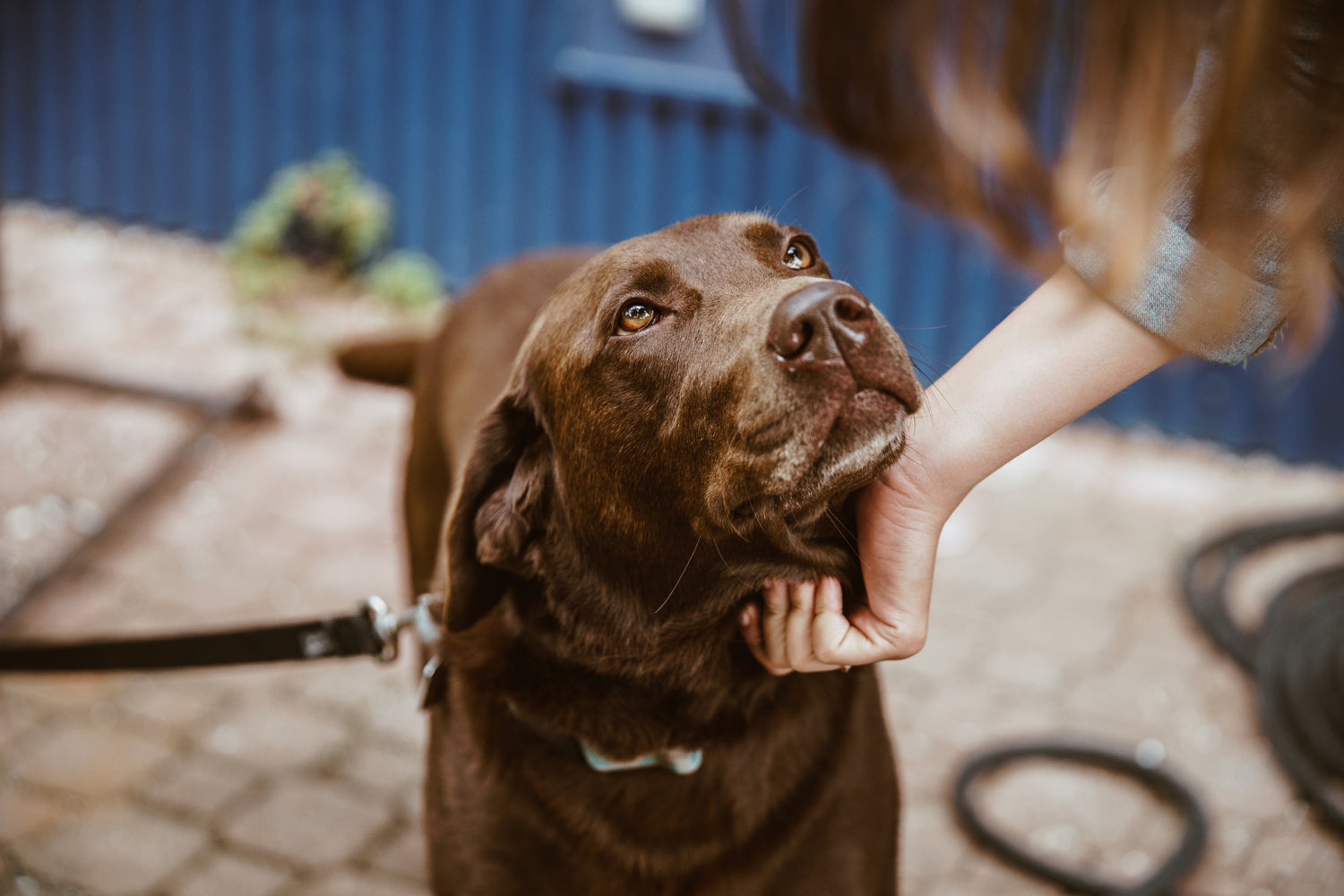My Dog’s Back Legs Are Suddenly Not Working.
What Should I Do?

There are several reasons why your dog may have a sudden loss of mobility in the hind legs. Dog arthritis, Degenerative Myelopathy, Spinal Injury, Diabetes and Cushing's disease are the most common. There are a large range of dog mobility aids available in our online shop including lifting harnesses, dog leg supports, dog hip braces and rehabilitation braces.
Read the in depth version into Reasons for Rear Leg Weakness in your Dog here

DM or CDRM (Chronic Degenerative Radiculomyelopathy) is a disease that mainly affects older dogs, but is only one possible cause of back leg weakness. In CDRM, the spinal cord begins to deteriorate, and the fibres that carry the signals from the brain to the legs break apart. Dogs with CDRM develop weakness in their back legs and eventually lose control of them. If your older dog begins to exhibit weakness in the hind legs, talk to your veterinarian about the possibility that your dog has CDRM. Sadly CDRM is a progressive, terminal condition. There is a rehabilitation device called the Biko physio brace, which acts as a walking aid which therefore also acts to slow down the degeneration of the dog's muscles.
Read more about Degenerative Myelopathy here

A second common reason for back leg weakness is spinal cord injury or back injury. Spinal cord injuries, often as a result of trauma, disc rupture or stroke, account for 2 percent of all dog veterinarian visits. If the spinal cord or back is damaged, bruised or inflamed, the back legs may become weak or unstable. If your dog has experienced any trauma and has weakness in his back legs, visit your veterinarian as soon as possible.
Read more about Spinal Injuries here
Your dog's leg weakness may be related to Cushing's disease, which is caused by the overproduction of cortisol in the adrenal glands. Cushing's disease generally develops in dogs older than 6 years but can develop in younger dogs.
If your dog has back leg weakness accompanied by hair loss, a pot-bellied appearance, and increased appetite and thirst, you can suspect Cushing's disease; visit your veterinarian for tests.
Dogs with diabetes may exhibit signs of back leg weakness, although this symptoms is more common in diabetic cats. Diabetes is more common in female dogs than in males and tends to be more prominent in golden retrievers, German shepherds, miniature schnauzers, keeshonden and poodles, although all breeds can be affected.
Overweight dogs or dogs eating diets high in sugars and grains are more at risk than dogs of healthy weights on higher-protein diets. If your dog is experiencing weakness in his back legs along with other common symptoms of diabetes, a simple blood test from your vet can determine if diabetes is the cause.
The cause of your dog's back leg weakness may be pain from arthritis. As dogs age, especially large dogs, the hip and knee joints begin to deteriorate and the cushioning in the joints disintegrates. An X-ray can generally confirm the presence of arthritis.
Luckily, several great natural supplements are available to help manage canine arthritis, improving the quality of life for a dog with painful, weak joints. Our Winston's pain formula shows really positive results with dog arthritis, acting as a powerful pain relief and anti inflammatory.
Read more about Arthritis here
Hip dysplasia are two words that terrify large- and giant-breed dog owners, but the truth is that canine hip dysplasia can happen to any size or breed of dog. This painful condition can drastically reduce a dog’s quality of life and is difficult for owners to watch.
The good news is that embracing responsible dog ownership and educating yourself about potential health conditions like hip dysplasia can go a long way toward keeping your dog comfortable. Learn what all owners should know about hip dysplasia in dogs, including the symptoms, treatment options, and preventative measures you can take to keep your dog healthy, happy, and active.
Read more about hip dysplasia here

The word cruciate means “to cross over” or “form a cross”. The cruciate ligaments are two bands of fibrous tissue located within each knee (stifle) joint. They join the femur and tibia together (the bones above and below the knee joint), so the knee works as a stable, hinged joint. One ligament runs from the inside to the outside of the knee joint and the other from the outside to the inside, crossing over each other in the middle. In dogs and cats, the ligaments are called the cranial and caudal cruciate ligaments. In dogs, the most common knee injury is a rupture or tear of the cranial cruciate ligament.
Read more about Cruciate Knee injuries here

IVDD in dogs can also be described as a ruptured, slipped, bulging or herniated disk. Intervertebral Disc Disease in dogs is usually an age-related, gradual degenerative process that affects the spinal cord of the dog over a period of time, often undetected.
Even with yearly wellness exams, your vet may not detect any signs of dog IVDD until your dog's hardened disc or discs become ruptured and painful symptoms become evident. Something as every day as a jump up onto the sofa could damage a disc that has been weakened by dog IVDD, and trigger acute and painful symptoms of the disease.
Read more about IVDD here

We can help find the right solution for your dog
Feel free to give us a call on 01730 622544
or email us at woof@zoomadog.co.uk
Comments
Leave a comment